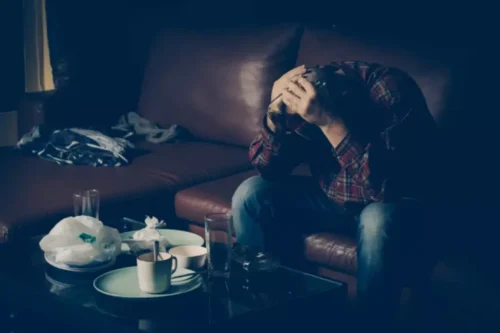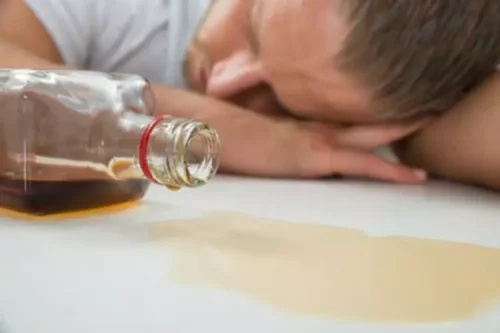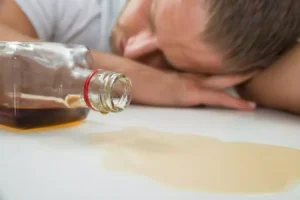
Recovery involves creating a new life in which it is easier to not use. When individuals do not change their lives, then all the factors that contributed to their addiction will eventually catch up with them. Clinicians can distinguish mental relapse from occasional thoughts of using by monitoring a client’s behavior longitudinally. Warning signs are when thoughts of using change in character and become more insistent or increase in frequency. Another goal of therapy at this stage is to help clients identify their denial.

Exposure to Substances
- Clinical experience has shown that recovering individuals are often in a rush to skip past these tasks and get on with what they think are the real issues of recovery.
- Because clients are not consciously thinking about using during this stage, denial is a big part of emotional relapse.
- Triggers activate both negative and positive emotions – both can move individuals to unhealthy or risky behaviors.
- Later, when using turns into a negative experience, they often continue to expect it to be positive.
- As a result, those recovering from addiction can be harsh inner critics of themselves and believe they do not deserve to be healthy or happy.
The first step is to know that your questions and feelings are normal. A relapse may look different for each person, depending on how much they use and the circumstances surrounding the relapse. When an addicted person acts on their craving, a surge of neurotransmitters causes them to feel pleasure. Twelve-step groups include Alcoholics Anonymous (AA), Narcotics Anonymous (NA), Marijuana Anonymous (MA), Cocaine Anonymous (CA), Gamblers Anonymous (GA), and Adult Children of Alcoholics (ACA).

Relapse Prevention: Strategies to Avoid Triggers

Managing high-risk situations is crucial in navigating the journey of recovery. In this section, we will explore practical approaches to effectively handle these challenges. From developing an effective relapse prevention plan to implementing strategies for coping with high-risk situations, we will uncover actionable insights to support your recovery journey.
The Most Common Relapse Triggers in Addiction Recovery

Having someone to support in situations where you are at risk of relapse can help. Find someone you trust and respect to kindly, but firmly, persuade you to stop what you’re doing if you do start to relapse. Having a substitute behavior like going to a yoga class or taking a long bath also can be helpful when you’re feeling triggered.
The Importance of a Relapse Prevention Plan
- If an individual remains in mental relapse long enough without the necessary coping skills, clinical experience has shown they are more likely to turn to drugs or alcohol just to escape their turmoil.
- Everyone will have different internal triggers, but by recognizing some of the common ones you will be better equipped to avoid or address your internal triggers.
- There’s no shame in seeking professional help – in fact, it’s one of the bravest things you can do.
- Therapy, counseling, and support groups are all great resources to help you on your path to recovery, offering essential tools and resources needed to maintain sobriety.
- Alright, let’s start by shining a spotlight on some of the most common emotional triggers in addiction recovery.
They often enter treatment saying, “We want our old life back — without the using.” I try to help clients understand that wishing for their old life back is like wishing for relapse. Rather than seeing the need for change as a negative, they are encouraged to see recovery as an opportunity for change. If they make the necessary changes, they can go forward and be happier than they were before. It forces people to reevaluate their lives and make changes that non-addicts don’t have to make.

Remember, reaching out for help and support is vital if you ever feel overwhelmed or struggling. Long-term sobriety is possible and starts with taking that first step. It’s essential to stick with your aftercare program and follow-up appointments. It’s also important to know when to ask for help again if you need it. After all, relapse doesn’t mean you have failed; it means you need more support and treatment.
Causes of Relapse in Late Stage Recovery
It’s the silent killer of types of relapse triggers sobriety, whispering sweet nothings about how a drink or a hit might make you feel less alone. A trigger is a stimulus that brings on a reaction or series of reactions. Triggers can set off memories or even flashbacks, transporting the individual back to the event or situation of the original behavior. Substance use triggers are high on the list of areas to look out for on the road of recovery and are the focus of today’s post. Self-efficacy refers to a person’s confidence in their own ability to achieve something.

 ارفف
ارفف الجزامات
الجزامات وحدات التلفزيون
وحدات التلفزيون وحدات الحمام
وحدات الحمام غرف الاطفال
غرف الاطفال السراير
السراير ترابيزة قهوة
ترابيزة قهوة ترابيزة جانبية
ترابيزة جانبية
 الركنات
الركنات كراسي
كراسي كنب سرير
كنب سرير ليزي بوي
ليزي بوي
 المطابخ الجاهزة
المطابخ الجاهزة وحدات المطبخ
وحدات المطبخ دولاب
دولاب كومود
كومود